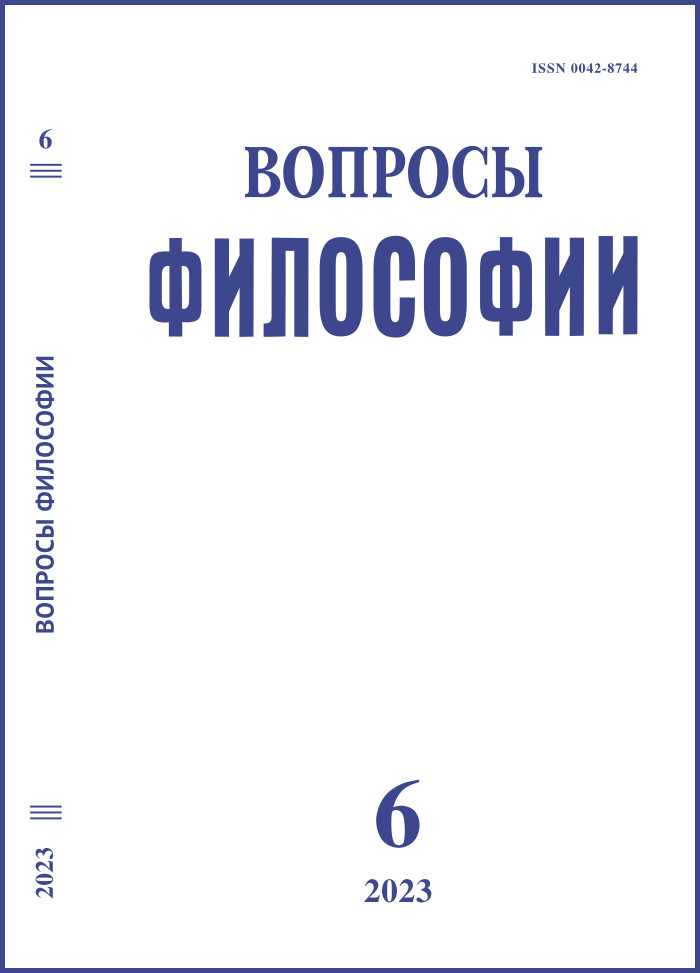Anthropological Tradition: Byzantine Orthodoxy and Islam
DOI:
https://doi.org/10.21146/0042-8744-2023-6-164-175Keywords:
Christianity, Islam, Byzantine patristics, Sufism, Incarnation of God, Eastern Church Fathers, Al-Ghazali, fanā’, similarity law, Mulk, Jabarut, Malakut, mirror and reflectivenessAbstract
The article examines the formation of religious-anthropological traditions formed within the framework of Byzantine Christianity and medieval Arab-Muslim philosophy. The views of the Greek-Byzantine theologian and thinker Maximus the Confessor (580–662) regarding man in the Church Fathers’ theological development of the main Christian dogma of the Divine Incarnation of Jesus Christ are presented. In terms of philosophical comparativism, the anthropological concepts of St. Maximus and the most outstanding representative of Islam, the founder of the Sufi philosophical-theological system of the Middle Ages, Abu Hamid al-Ghazali (1058–1111) are compared. Both the common features of the theology and philosophy of these thinkers and the differences in their anthropological doctrines are demonstrated. One point of intersection is the philosophical idea of the perfect man, which was formed by the Greek-Byzantine Church Fathers and al-Ghazali and based on which they created a broader philosophical-theological understanding of man in his relationship to the Creator. The authors indicate how the idea of human perfection was realized in the relation God-man-world ontologically and epistemologically from the perspectives of Eastern Patristics and Sufism. The integrity of the spiritual-bodily man in the orthodox doctrine of Byzantine Christianity is shown. Al-Ghazali’s doctrine of man is substantiated as a conceptual comprehension of man’s place as a caliph – the deputy of God on earth – in the world’s system created by the deity.

